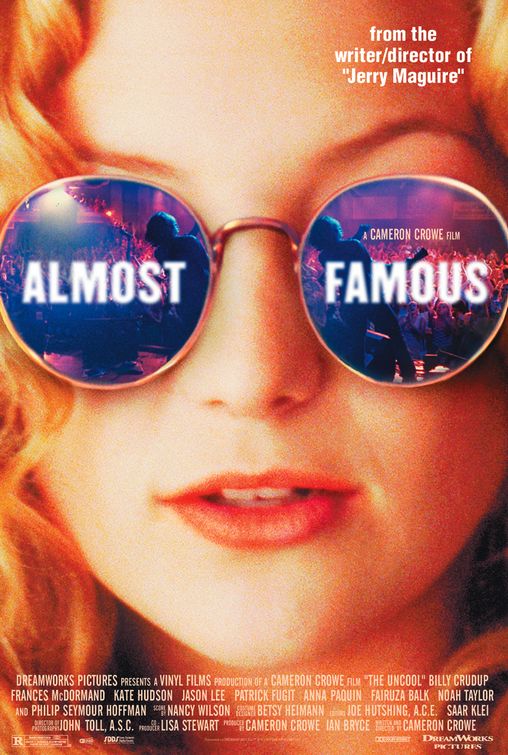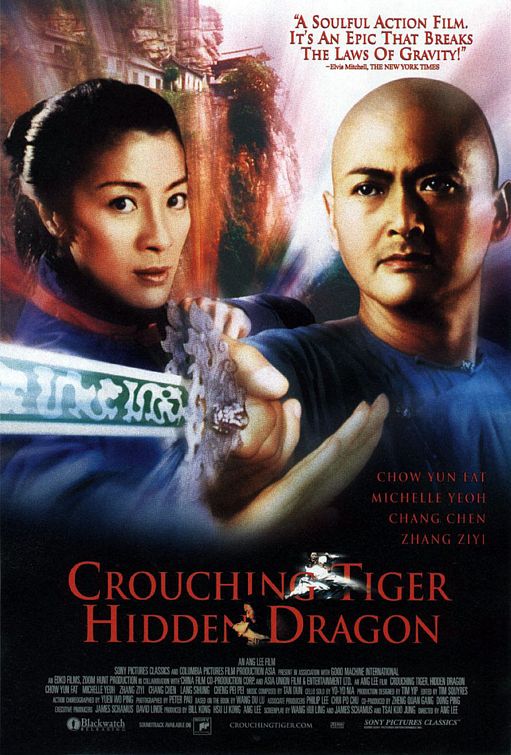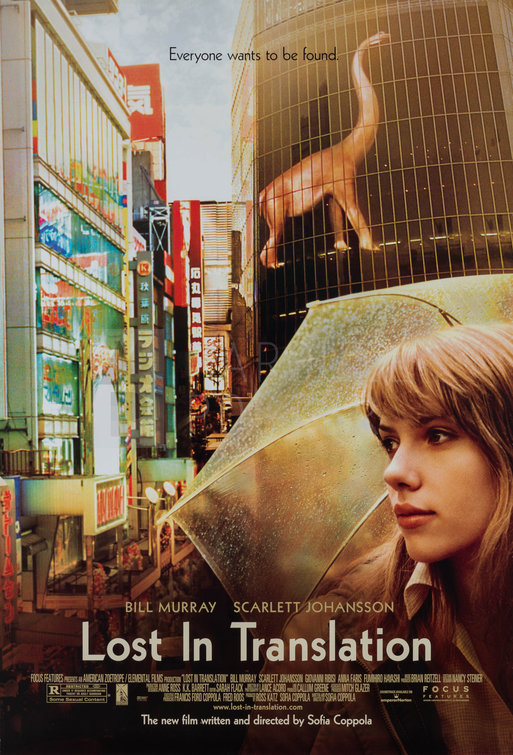oops, i kinda sorta maybe forgot Cache. but that happens to the best of us… by which i mean it happened to me. wouldn’t have cracked my top ten, though. also… sorry Hellboy II. alright, let’s end this lugubrious trail of tears… after a RECAP!
115.) GOODBYE, DRAGON INN
114.) SUNSHINE
113.) REQUIEM FOR A DREAM
112.) RUSSIAN ARK
111.) SPARROW
110.) LAST LIFE IN THE UNIVERSE
109. ADAPTATION
108.) CRIMSON GOLD
107.) THE AURA
106.) CLOVERFIELD
105.) ENCOUNTERS AT THE END OF THE WORLD
104.) MONSOON WEDDING
103.) THE OTHERS
102.) FISH TANK
101.) INLGORIOUS BASTERDS
100.) ZODIAC
99.) WHERE THE WILD THINGS ARE / ANTICHRIST
98.) THE ASSASSINATION OF JESSE JAMES BY THE COWARD ROBERT FORD
97.) A CHRISTMAS TALE
96.) THE TRIPLETS OF BELLEVILLE
95.) REVANCHE
94.) MOTHER
93.) 2046
92.) LET THE RIGHT ONE IN
91.) RACHEL GETTING MARRIED
90.) CITY OF GOD
89.) BATTLE ROYALE
88.) PUNCH-DRUNK LOVE
87.) ONCE
86.) GOODBYE SOLO
85.) TURNING GATE
84.) THIRST
83.) KISS KISS, BANG BANG
82.) MARIE ANTOINETTE
81.) THE BEAT THAT MY HEART SKIPPED
80.) MYSTERIOUS SKIN
79.) CASINO ROYALE
78.) THE TWILIGHT SAMURAI
77.) SHAUN OF THE DEAD
76.) LINDA LINDA LINDA
75.) THIS IS ENGLAND
74.) LUST, CAUTION
73.) THE DEATH OF MR. LAZARESCU
72.) THE DEPARTED
71.) WALTZ WITH BASHIR
70.) THE MAN WHO WASN’T THERE / A SERIOUS MAN
69.) SYMPATHY FOR MR. VENGEANCE
68.) THE FIVE OBSTRUCTIONS
67.) 28 DAYS LATER
66.) IN THE BEDROOM
65.) INTO GREAT SILENCE
64.) UP / RATATOUILLE
63.) NOBODY KNOWS
62.) THE WHITE RIBBON
61.) THE DIVING BELL AND THE BUTTERFLY
60.) ATONEMENT
59.) HOUSE OF FLYING DAGGERS
58.) THE PIANIST
57.) 4 MONTHS, 3 WEEKS, AND 2 DAYS
56.) THE WORLD
55.) MEMORIES OF MURDER
54.) KILL BILL
53.) OFFSIDE
52.) TROPICAL MALADY
51.) SPRING, SUMMER, FALL, WINTER… AND SPRING
50.) THE PRESTIGE
49.) Y TU MAMA TAMBIEN
48.) TALK TO HER
47.) NO COUNTRY FOR OLD MEN
46.) THE WHITE DIAMOND
45.) ELEPHANT
44.) ME AND YOU AND EVERYONE WE KNOW
43.) MY WINNIPEG
42.) TOKYO SONATA
41.) MEMENTO / SYMPATHY FOR LADY VENGEANCE
40.) BEFORE SUNSET
39.) BOWLING FOR COLUMBINE
38.) THREE TIMES
37.) LITTLE CHILDREN
36.) CHILDREN OF MEN
35.) THE LIVES OF OTHERS
34.) SILENT LIGHT
33.) MAN ON WIRE
32.) AMELIE
31.) 35 SHOTS OF RUM / STILL WALKING
30.) THE WIND WILL CARRY US
29.) WHAT TIME IS IT THERE?
28.) CATCH ME IF YOU CAN
27.) LAKE OF FIRE
26.) MUNICH
25.) HUNGER
24.) MULHOLLAND DRIVE
23.) IN THE MOOD FOR LOVE
22.) SIDEWAYS
21.) SONGS FROM THE SECOND FLOOR
20.) OLDBOY
19.) LORD OF THE RINGS
18.) FAT GIRL
17.) ETERNAL SUNSHINE OF THE SPOTLESS MIND
16.) BLIND MOUNTAIN
15.) 25TH HOUR
14.) 40 YEAR-OLD VIRGIN
13.) SPIRITED AWAY
12.) SECRET SUNSHINE
11.) GRIZZLY MAN
———————————————-
Top Ten after the jump!
10.) BRAND UPON THE BRAIN! (dir. Guy Maddin)

poor Guy Maddin’s mother. an apocryphal tyrant tempered by nostalgia in My Winnipeg, here - as the overlord of an island lighthouse in which sinister activities are afoot - she’s a pure Freudian monster. the most fantastical of his 16mm fever-dreams (and the one stuffed with the most deliriously indelible of inter-titles), Brand Upon the Brain! finds another cinematic distillation of Guy Maddin revisiting his supposed childhood home and finding himself overrun by memories replete with wild inventions (the aerophone!) and psycho-sexual confusion (Chance and Wendy Hale!), and ties them altogether in a bow fashioned from the forgotten etchings of Edward Gorey or perhaps an Arthur Conan Doyle story deemed too steeped in the fog of memory to ever be published. the relentless voiceover was recorded by a series of performers (and then performed in choice venues by whatever madcap talent Maddin could summon for the evening, including castrato), but my favorite is Isabella Rossellini’s, for she is an actress most simpatico with Maddin, and her spirited and mellifluous cadence is intoxicating. a mess of metaphors that resolves itself into a tender reconstitution of both young men and young film, Brand Upon the Brain! is a singular work from a singular filmmaker.
9.) ALMOST FAMOUS: UNTITLED DIRECTOR’S CUT (dir. Cameron Crowe)

the movie cameron crowe has already lived and was born to make, Almost Famous captures on film a time captured by music. an exuberant and heartfelt elegy for the world that shaped him, this rock autobiography is rich with loving detail and absolutely bursting at the seams with enthusiasm. crowe’s natural proclivity to focus on his proxy (embodied by patrick fugit in an unconventional role so complete it seems to have robbed him of any other significant gigs) allows the film to suffuse every corner of its frames with vibrant period details that contribute to a sense of community rather than hollow spectacle… the ambitions, archetypes, and trajectories on display here are all familiar, but when seen through the wide, naive eyes of a too-young journalist it all feels new again… and the details. the details. this film works and works so well because of the immaculate details, all of which share a harmonious timbre of sly importance… a happy ending is never in doubt - the suspense lies in how kid Crowe will navigate a dreamworld where he seems to be the only one who can hear the music for which everyone ostensibly shares a communal love. and it’s the details that have me singling out the extended cut of the film, in which myriad scenes that don’t contribute to the plot allow for a much fuller portrait of the kid’s loves… the more precise Crowe gets, the more broadly relatable his passions become. i mean… i could go on, i could write essays on Philip Seymour Hoffman’s ridiculous Lester Bangs or the diction of Terry Chen’s Ben Fong-Torres, but i imagine you probably love this movie as much as it loves itself.
8.) CROUCHING TIGER, HIDDEN DRAGON (dir. Ang Lee)

an unlikely masterpiece from an erratic filmmaker who is almost always better when he’s not working in english, Ang Lee’s emotionally charged surprisingly wu xia epic not only channeled the great King Hu, but revitalized his films in a broad and painterly melodrama of tremendous feeling. perhaps the most commendable element of Lee’s film is that amidst its unspeakably stunning vistas and immaculate choreography (seriously… the fight sequences here are the stuff of hostile ballet, and Lee has the good sense to not interfere Yuen Woo-Ping’s fluid blocking with lazy cuts, relying instead on glorious long shots), the film has supreme confidence in its characters and story… which is a rarity for the genre. the film takes an expected poetic license with gravity, but rather than do so simply because of convention, it explores how genre tropes might better express character… namely, the various extents to which the characters are burdened by their choices. it honestly smacks of Milan Kundera. the love story is fierce, believable, and legitimately erotic, and the devastating reservations of the tale’s elder statesmen are deeply affecting without ever falling prey to nonsense. add in an unforgettable score and the star-making performance of Zhang Ziyi and you have one of the most surprisingly yet deservedly oscar nominated films ever. for realz.
7.) THE SON (dir. Jean-Pierre & Luc Dardenne)

methinks i might have mentioned at the verrry start of the fortnight that i never quite jived with the Dardenne brothers this weekend. well… every rule has its exceptions, even if few of them are as indelibly powerful as The Son. the story is excessively simple - par for the course for the Belgian duo - and to reveal too much would be positively criminal… the relentlessly vigilant and bobbing camera (never anchored to anything but the DP’s staunch shoulders) is most trying to keep pace with the aggressive steps of a man (Dardenne regular Olivier Gourmet who delivers one of the single most complete performances i’ve ever seen), who imbues juvenile delinquents with the craft of carpentry. a tight-lipped man whose palpable yet initially unexplored anger seems to course through his muscles (the leather strap that encircles his chest seems there less to support him than to keep him contained)… Gourmet’s absorbing performances is a resolutely physical one… the Dardenne’s are obsessed with labor, and communicate far more effectively through the protocol of motion than through spare dialogue. he has a new ward about whom he seems conflicted. what unspools from there is… i mean, to even describe the emotional territory it mines would be ruinous. suffice it to say that the Dardennes… here… it’s literary filmmaking at its most kinetic and spiritual - they tell stories in a way that exploits cinema’s unique capacities for deceptively naturalistic filmmaking that mocks the very notion of verite… i can’t say much more. this is a concise and perfect film you will never forget. and there’s one shot where Gourmet is driving and says “I’ve gone too far” and looks backwards as he puts the car in reverse that is pretttttyyy much the best thing ever.
6.) THERE WILL BE BLOOD (dir. Paul Thomas Anderson)

paul thomas anderson’s stab at evolving from wunderkind to titan was more than a little successful. i’m not gonna bother here, but… lesson learned: if you’re gonna make a movie about a single-minded oil tycoon, hire jonny greenwood to provide the score.
5.) THE BEST OF YOUTH (dir. Marco Tullio Giordana)

if you haven’t seen Best of Youth, see it before you see any of the other films on this list. as one friend to whom i recently recommended it said after her first viewing: “I am in pieces. I will be in pieces forever.” at first glance that might seem a bit much, but methinks she was being a bit understated about it - Best of Youth doesn’t fuck around.
some films (e.g. The Son) feel like classic novellas, whereas something like the 6-hour Best of Youth (originally devised as a mini-series for Italian television) have the breadth and emotional scope of fine literature. Giordana’s film is intimate, almost unspeakably moving family saga (seriously… you’ve cried more this week than I have in the past 15 years, and one moment towards the end of this film utterly devastated me) about two brothers on divergent paths, that humanizes italy’s turbulent half-century in the years following WWII without ever feeling reductive. episodic and addictive, hugely broad while also hauntingly nuanced… this is rather simple meat & potatoes filmmaking that tells a wonderful story perfectly. it’s one of my favorite films.
4.) YI YI (dir. Edward Yang)

ahh Yi Yi. Taiwanese master Edward Yang’s final finished film before he died a few years ago and not old enough, Yi Yi is cut from the same cloth as Best of Youth in that it’s a multi-generational saga of a family defined by its decisive individualism - unlike the latter work, however, Yi Yi’s narrative is restricted to the confines of a single, occasionally tumultuous year. it’s hard to call it concise at a running time of 3 hours (especially as it seems to span entire dimensions) but at a gentle, ruminative pace (contemplative but never brooding) it seems to slip right on by. a wise glimpse of modern Taipei and the quiet crises of its denizens, the film is anchored by a family man’s curiosity as to what his life might have been with another woman. while every member of his clan gets their fair share, my affection is largely reserved for the family’s youngest son Yang-Yang, an adorable rapscallion with a penchant for photographing the backs of heads so as to reveal to his subjects their most intimately obvious mystery. while an easy metaphor for the film as a whole, it’s also an entirely appropriate one, as Yang’s camera (with yang-yang and his camera a clear proxy) distilling existential crises into domestic doses. the great issei ogata shines as a Japanese software developer named Ota - the time NJ (oops, he be the protagonist) spends with him during a mid-film sojourn to Tokyo is absolutely rapturous. in such limited space i can’t do much more than to draw your attention to the title, which translates literally as “one one” but more colloquially as “a one and a two.” the character couplet “- -“ can be translated as “a one” and also as “two.” given the often perpendicular orbits of the diffuse lives in Yang’s final family, this sly pun essentially delineates the various strata of human perspective within which the film operates.
Yang’s film was most fortunately immortalized in the Criterion Collection, as it’s a work that I very much look forward to growing with and filling in. from a decade overrun with astounding and inventive Asian cinema, Edward Yang’s stoic and reserved yet dauntingly ambitious saga was the best.
3.) WERCKMEISTER HARMONIES (dir. Bela Tarr)

if the opening sequence and the agreeable wikipedia description on top of the film’s lofty position on my list don’t have you convinced to see, reconsider, or continue to admire the austere and enigmatic genius of Bela Tarr’s Werckmeister Harmonies… there ain’t much more i can do. this is how the world ends: not with a bang, but with a whale in a truck.
Werckmeister Harmonies (Hungarian: Werckmeister harmóniák) is a 2000 Hungarian film directed by Béla Tarr, based on the novel The Melancholy of Resistance (1989), by László Krasznahorkai. Shot in black and white and composed of only thirty-nine languidly paced shots, the film describes the aimlessness and anomie of a small town on the Hungarian plain that falls under the fascist influence of a sinister traveling circus lugging the immense body of a whale in its tow. A young man named János tries to keep order in the increasingly restless town even as he begins to lose his faith in the unnatural and disordered universe from which God Himself seems to have disappeared.
The title refers to the baroque musical theorist Andreas Werckmeister. György Eszter, a major character in the film, gives a monologue propounding a theory that Werckmeister’s harmonic principles are responsible for aesthetic and philosophical problems in all music since, which need to be undone by a new theory of tuning and harmony.
2.) DANCER IN THE DARK (dir. Lars Von Trier)

DAVID MORSE ALERT.
i’m convinced that Dancer in the Dark is the greatest musical the cinema has ever known. not exactly in the tradition of Arthur Freed, Lars Von Trier’s sadistic tale is that of Selma - a good woman with bad vision (Bjork, in what i unequivocally consider the single best performance of the decade… that the academy awards failed to acknowledge her work is maddening and particularly damning proof that the Oscars are shrill, meaningless, and out-of-touch… to be generous) who tirelessly works at a factory in order to raise the funds necessary to afford her son a vision-saving operation. the spangly timbres and lush tones of hollywood musicals offer Selma her only solace from a menial and seldom-rewarding existence in the Pacific Northwest… a world ever more complicated by the affections of her doltish co-worker (Peter Stormare, killing it) and a duplicitous neighbor (the one true David Morse). although it initially appears as if Von Trier is content to settle into the grooves of dogme 95’s dane-o-realism, around the 45-minute mark the violent machinery of the factory at which Selma works begins to churn out a faint toe-tapping beat… and through the eyes of several dozen cameras, Selma explodes into song. accompanied by ingeniously organic choreography and one of the several brilliant songs Bjork contributed to the soundtrack (her cuts here are on par with her finest work… and that’s saying a LOT coming from me), Selma’s fantasia of an escape is made palpable and dangerously consuming. later musical sequences - all of which nimbly express Selma’s faintly fanciful inner-being while transcending it entirely - involve as many as 100 cameras, so as to capture the action from every conceivable angle, a tactic which tacitly communicates the completeness of Selma’s delusions. while the film eventually resolves itself into an extremely grueling experience that ends on a particularly deadening note (seriously makes Breaking the Waves feel like a charmer), Von Trier’s increasingly visceral saga uses blunt force to hammer home abstract ideas… gratuitously paralyzing his audience as if opening their pores, allowing his take on human exploitation, capital punishment, and the discourse between culture and fantasy to seep right on in. you’ll never count to 107 quite the same way, again.
END OF DAVID MORSE ALERT.
1.) LOST IN TRANSLATION (dir. Sofia Coppola)

different films resonate with different people. that’s just the way of it. some films were just made for certain people, and it’s the beauty of the medium that you never quite know where they’re going to come from. Abbas Kiarostami’s Close-Up - an Iranian slice of meta-cinema from the early 90s - turned my world upside down at 10 AM one Tuesday morning. my affinity for Sofia Coppola’s sophomore film was a tad more predictable. I have a storied affection with Japan that repeated trips have largely deprived of fetishistic qualities, am more than a little interested in the dialogue between romance and film, and go all quivery at the sight of a simple and confident composition painted with a soft palette. also, i take my films with a heavy pinch of longing and wordlessly unfulfilled desire, thanks. i hate to go all aintitcoolnews on you guys, but my relationship with this film is a decidedly personal one.
while i’d happily prattle on about how there isn’t a single fucking frame in this impeccably edited film which doesn’t in some way contribute to a feeling of isolated discordance, my initial response was purely guttural. sure, i was lulled by lance acord’s immaculately fitting cinematography and the perfect musical accompaniment provided by the likes of KEVIN MOTHERFUCKING SHIELDS, but… as i first watched this film on the afternoon of september 12, 2003 at the 68th street Loews… i was a bit bored. bored but apparently in ms. Coppola’s thrall, as the next day I went back by my lonesome, if only to satisfy my curiosity. as someone who very seldom sees a film more than twice during its theatrical run, I was more than a bit surprised at my behavior as I purchased my 6th ticket for Lost in Translation a few weeks later.
Sofia Coppola is a humanist filmmaker of the highest order (okay, maybe not the HIGHEST order… she hasn’t exactly proven herself the equal of Kurosawa or Bresson quite yet…), and Lost in Translation is a simple and tremendously relatable tale. in it Coppola examines both the macro and the micro of the fundamental isolation of the human experience… a species disenfranchised from one another by virtue of divergent identities, attempting to reconcile the divisive chasms with the unifying forces of culture and partnerships. the obviously foreign qualities of Japanese society are comically and economically employed to jostle the twin protagonists towards self-awareness in a way that the simple flirtations of a chance meeting could only hint, and Coppola is careful not to be jingoistic, but rather to slyly damn her Americans for their natural inability to be at peace with the differences. alternately consuming cultural mores (Charlotte’s inability to cry) or mocking them while suffering from the banal indignities of their own homes (Bob’s experiences in the ad world in contrast to carpet samples and clips from his less than illustrious film career), Tokyo - as a decidedly different brand of metropolis that mirrors American life in a way that the more ramshackle conurbations of Shanghai and the like don’t bother to - is the perfect foil for two Americans made royal by either upbringing or celebrity.
Coppola eventually happens along the rather reductive understanding that connections - no matter how fleeting - are pretty much all there is to this world. but more than that to me Coppola’s is a film about moments spanning entire lives… about aesthetics and how the perfect set dressing or aural accoutrement can save defining moments from withering memories. it’s a film that knows it knows only so much, and one that i’ve been happy to retrace… a somewhat quixotic (yet remarkably successful) adventure undertaken as if to prove the film real (i mean… down to performing karaoke in the actual booth in which Charlotte whimpers Brass in Pocket… among my most fanboyish moments, and one i’ll probably have to strike from the record if in the unlikely event Film Comment ever demands me to don my serious critic hat… which is also a bandit hat from Fantastic Mr. Fox. oops).
there really ain’t two ways about it - Lost in Translation is my favorite film of the… Naughties? at least for now. maybe forever.
if you’re still reading this, thanks. and also… really?






1 comments:
Excellent collection! And you got my favorite movie "Kill Bill" that movie it's so cool and exciting! I saw it with a friends of Buy Viagra
Post a Comment